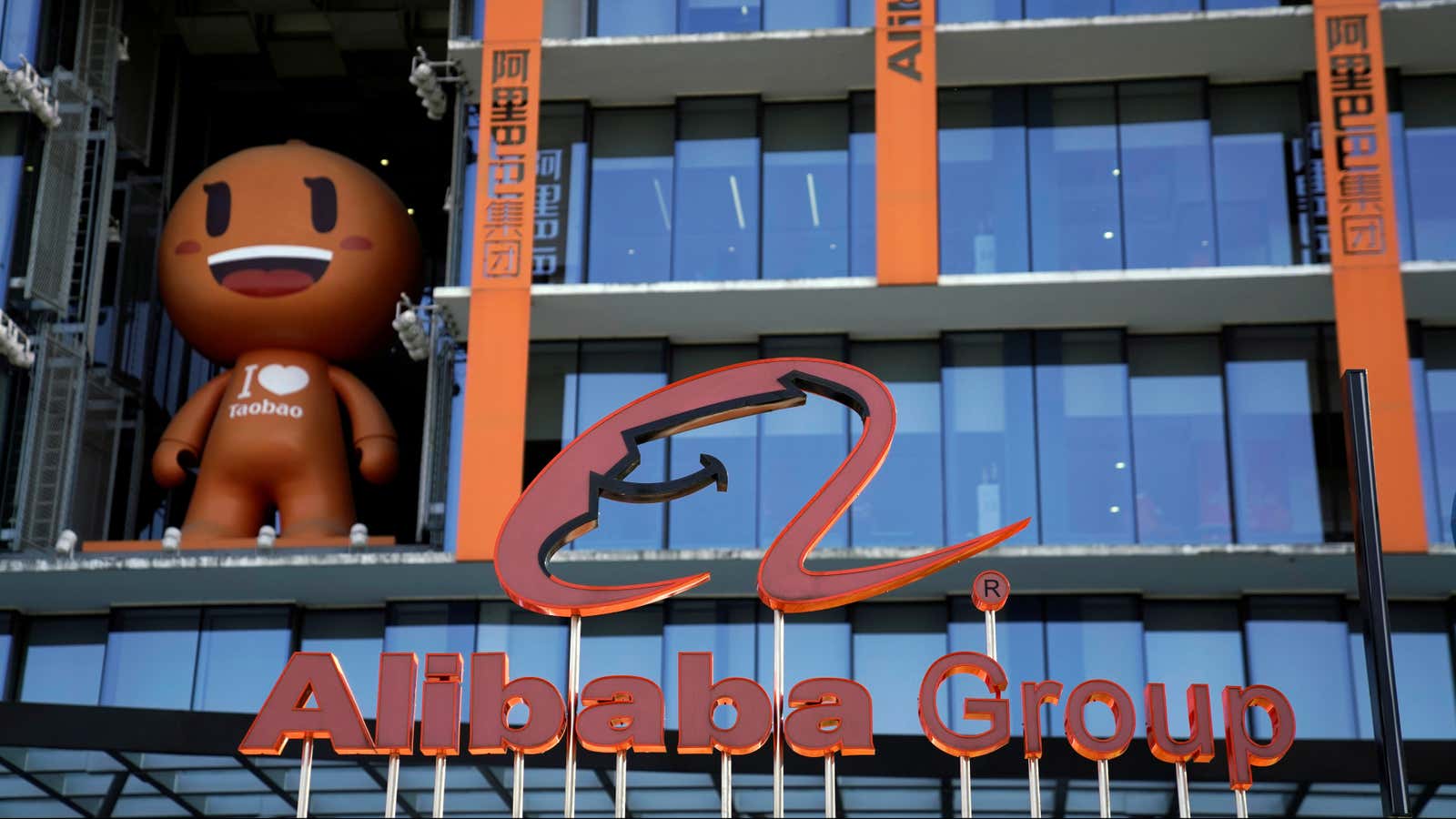When a female Alibaba employee alleged that her manager and a client had sexually assaulted her, the e-commerce giant’s CEO publicly apologized and promised to do better. Four months later, she was fired.
In August, an employee identified only by her surname Zhou, wrote an 11-page essay in which she alleged that she was pushed to drink excessively by her male supervisor during a client event in late July, and was groped by the client. She said she was also sexually assaulted by her manager, a man surnamed Wang, who was kissing and touching her when she woke up. The account sparked a major public backlash against the company, and drew fresh attention to sexism and a toxic drinking culture prevalent at many firms. Eventually, Alibaba fired Wang, while two of the company’s senior managers also resigned over the issue.
Zhang, the CEO, called Zhou a “traumatized colleague,” and vowed to make change “start at the top.”
However, over the weekend Zhou told state-owned Chinese newspaper the Dahe Daily that the firm sent her a dismissal letter on Nov. 25, in which the company said she had spread false information that “the company knew about [her assault] but didn’t take any action,” according to a picture of the notice the newspaper published. Zhou’s behavior violated Alibaba’s internal code of conduct that says employees should not publicly spread ”inappropriate remarks,” or “deliberately fabricate and spread made-up facts, or unconfirmed information,” the letter said, adding that her claims caused social concern and had a “bad impact” on the company.
Zhou rebutted the company’s accusations against her, and pointed to police action taken against her manager.
“I haven’t done anything wrong, so will not accept this result. I will use legal means to defend my rights,” she said.
Chinese police in September said that the manager had engaged in “forcible indecency,” and detained him for 15 days. However local prosecutors decided not to bring criminal charges. In an interview with Dahe, one of Zhou’s lawyers said he had submitted an appeal to the prosecuting department that decided not to pursue criminal charges against the manager, and the appeal has been accepted.
The company didn’t reply to a request for comment, while a lawyer representing Zhou didn’t return calls from Quartz.
A hostile climate for #MeToo in China
Soon after women began speaking out globally about sexual harassment, the #MeToo movement also came to China, where universities in particular saw women disclose previously unreported offenses online. In one crucial win for feminist activism, sexual harassment was added to the civil code in 2020.
But with increasing suppression of dissent in China, state-led efforts to silence #MeToo activism or victims have also mounted. Accounts promoting feminist ideas, including rejecting entrenched norms for women such as getting married and having children, have been shut down this year. In September, Zhou Xiaoxuan, who brought a landmark sexual assault lawsuit against famous TV host Zhu Jun, faced a setback when the court ruled she had insufficient evidence to proceed further. After Zhou posted her complaints about the ruling on the Chinese platform Weibo, her account was quickly shut down.
Only a month later, Chinese tennis player Peng Shuai openly accused former Chinese vice premier Zhang Gaoli of sexually assaulting her, in what is China’s highest profile #Metoo allegation to date. But instead of conducting an investigation into Peng’s claims, Beijing quickly censored the incident at home, while staging a clumsy external PR campaign in the face of international pressure demanding to know Peng’s whereabouts.
Alibaba’s dismissal of Zhou will only add to the difficult climate for women bringing sexual harassment allegations. Already, the development has unleashed a wave of celebration on Weibo among the largely male critics of the movement, with many saying this shows Zhou was lying about being harassed and that she used feminists to hype up “gender opposition” in order to get compensation from the company. Some say Zhou must have seduced the manager in the first place, while others slammed her for making it harder for other women to raise such allegations in the future.
Zhou told Dahe that she and her family have received torrents of online abuse on a daily basis ever since her allegations were made public, leading to her being diagnosed with severe depression. She said she has received many messages from other women who experienced such assault but didn’t have the courage to stand up against it, and said she understood their hesitance due to the further wounds they might sustain for voicing their cases.
But for herself, she said she still thinks the world is a place “where black is black and white is white.” “If the bad people don’t get their punishment, I might never be able to walk out from the shadow,” she said.
